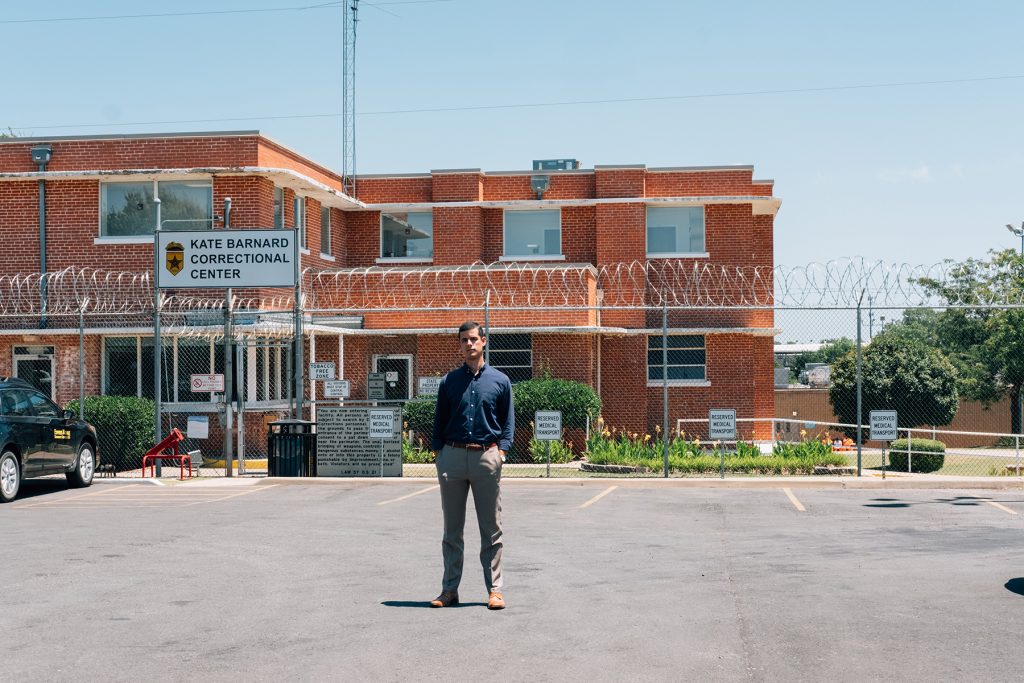It’s lunchtime on a Tuesday when I pull up to the Kate Barnard Correctional Center on the east side of Oklahoma City. My pulse jumps a little at the sight of the barbed wire fences, but I have no reason to feel unsafe—I’m attending a meeting that’s open to the public. I let myself in a chain link gate and walk in holding just a notebook and a pen, though it feels intrusive to take notes at something like this. I’m the only visitor. Everyone else is here to speak on behalf of a family member or client who’s on the other side of a TV screen, in prison holding rooms across the state. It’s the second day of the Pardon and Parole Board’s monthly meetings. Here, board members hear from dozens and dozens of inmates for hours on end, each one asking for a chance at life outside the walls.
I see Adam Luck immediately, though it takes him a while to see me—he’s listening intently to every person’s case and looking family members in the eyes to thank them for being there, regardless of the results of the board’s vote. I’m at the meeting for a little under an hour, and Adam votes yes to grant parole on every case I see.
No one wants to spend their Tuesday lunch hour inside a yellow state building surrounded by barbed wire. It’s uncomfortable to look at the people on the screen, whose days and years unfold under fluorescent lighting and behind locked doors. It’s uncomfortable to hear their pleas for pardon or parole, to hear the tone of their voices while they ask for a second chance. It’s even more uncomfortable, although uncomfortable is too soft a word, when the board votes no.
The atmosphere in the room is heavy, and Adam tells me as much when we meet for an interview between cases. “It’s like being in a dark hole,” he says. And yet, people keep showing up—family members of all ages, friends from church, a six- or seven-year-old girl who steps shyly up to the camera so her uncle, in prison for selling cocaine, can see her for the first time. The thought crosses my mind that only the love of family could bring people to a place like this.
I fill up a page, front and back, with notes. But I stop writing long enough to see the faces of these family members who have also showed up, in the middle of the day on a Tuesday, in this dark hole of a room, to look into the faces of the people they love.
In almost every case, a mother is present, asking the board to grant parole to her son. “I raised him right,” one mother says. “He has a good heart.” The family members here look weary, and they look hopeful, too.
I’ve never stepped foot inside a prison or a correctional facility until now. But I know intuitively, maybe by the strong and tender way these mothers speak of their sons, that I would go in an instant if it were my son, brother, or husband whose case was up for parole. Like the family members here, I wouldn’t hesitate to offer my time, resources, or simply my presence, because that’s what we do for family.
And, though the people pleading parole today are not his biological family, it’s also what Adam seems willing to do for just about anyone who asks.
Read the rest over at Nations.
Photo by Hunter Lacey.

Leave a comment